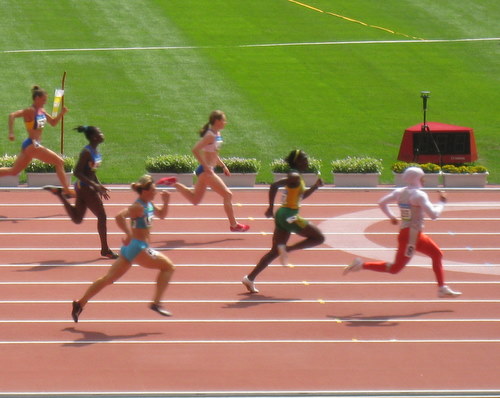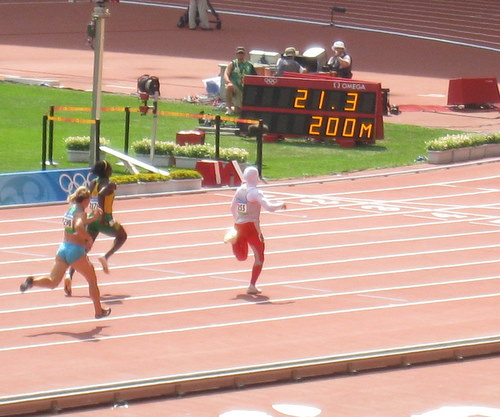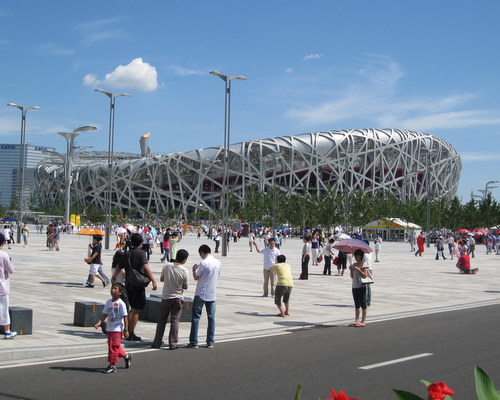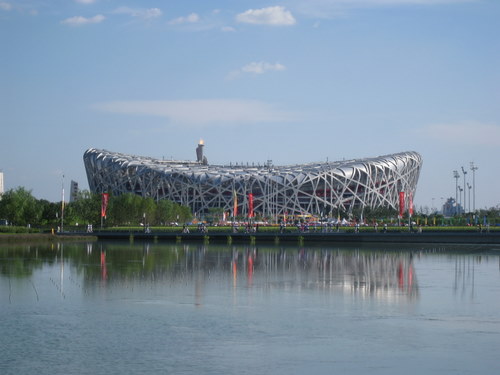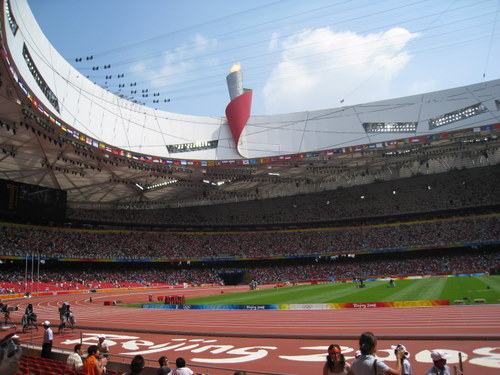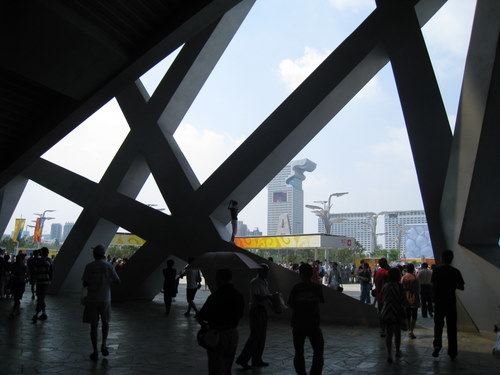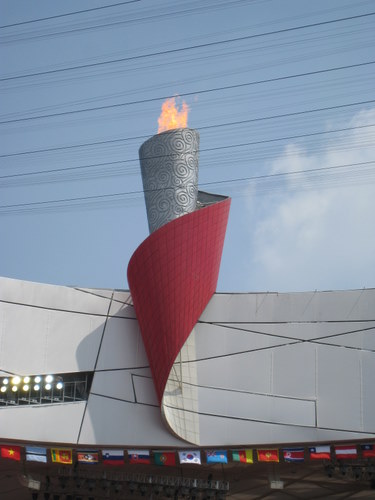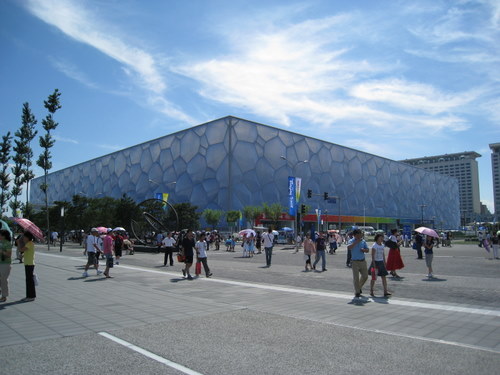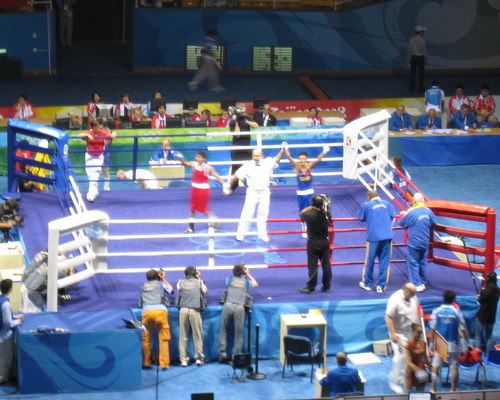With the Olympics now in our rear-view mirror, it’s time to answer the $40 billion question.
Was it worth it?
China spent $43 billion on these Games, more than doubling the previous record of $15 billion for the 2004 Games in Athens. The government shut down hundreds of factories across northern China and pulled half of the cars off the streets of Beijing in a desperate effort to clear the skies. It ordered more than a million people from their homes to make way for the stadiums and Olympic Green area, shuttered hotels and restaurants that didn’t meet the standards it hoped to portray to its foreign guests, and rounded up an untold number of dissidents to make sure everyone was on message for the Games.
And that doesn’t include the money that was spent on training the athletes to make sure the PRC topped the medal count, or training the citizens of Beijing to make sure no one was rude, spit on the streets, or jumped in line during the Games.
It may be a bit of a stretch to say the entire Chinese economy was affected by the government’s many Olympics-related regulations. But between factory closings, new environmental regulations, and stricter visa policies aimed at preventing unwanted people from entering the country during the Games, a pretty wide range of Chinese businesses had a rough couple of months. Everything from the Beijing sports bar that added a 15% Olympics fee to each customers’ bill along with a note about how the new Olympics rules had raised the cost of shipping and transporting food and drinks to the restaurant, to a shoe company in Shenzhen (about as far as one can get from Beijing and still be in China) who saw prices rise for rubber, plastic, and leather due to Olympics-related factory closings.
And since nothing that could tarnish the Games could be left to chance, the government had to deal with the weather, too.
Fortunately, China had already established a Weather Modification Department with an annual budget of $60-90 million. The WMD has a full-time staff of 1,500 and a part-time brigade of 37,000 ready to deploy the department’s 7,113 anti-aircraft guns and 4,991 rocket launchers.
Their job was to figure out how to control the weather, so the government could do things like make it rain in specific areas when there was a drought (apparently, this is done by firing packets of silver iodide into the clouds using anti-aircraft guns and/or rocket launchers). But for the past seven years, their most important job was to make sure the skies were clear for the Opening Ceremony.
The Games had a pretty significant social impact, as well.
Thanks to months of Olympics-themed lessons (some of them administered by yours truly), Chinese school-children are now conversant in Olympic tradition and history, from the colors of the Olympic rings to the height, weight, and birthdays of past Chinese Olympians.
In a country where it is common to find infants urinating in the streets, even in major cities, ordinary people will tell you they are excited about the environmental benefits of the Olympics-inspired ban on free plastic shopping bags.
And the Games may have even inspired a few thousand more people to work on their English, from the elderly volunteers who started studying English when Beijing won the bid in 2001 so they could help give directions or answer questions for foreigners seven years later, to the manager at a McDonald’s in Hangzhou who playfully scolded a cashier in late July, “You must practice English, Olympic Games are coming!”
So, was it all worth it?
Don Lee of the Los Angeles Times thinks so. He explains that while lesser economies have struggled after shelling out more than they could afford to put on a dazzling Olympic show, the Chinese economy is likely to improve after the Olympics.
The oft-quoted cost of the Games should have little effect on the world’s most populous nation, says Lee, and the lifting of a litany of Olympics-inspired regulations should allow China’s economy to get back to normal, with normal being an absurdly impressive rate of growth.
Apparently, $43 billion is not a whole lot of money for one of the largest and fastest-growing economies in the world.
According to one economist in Shanghai, the record-setting Olympic price tag may have accounted for as little as 0.5 percent of China’s total national investment in the last five years.
There is universal agreement that the Games were a logistical and technological success.
There was a bit of scolding from the press for internet censorship, and the treatment of reporters, and the failure to allow any protesting. And there was even an uproar over the fact that the adorable little girl in the Opening Ceremony was (gasp!) lip-syncing. But on the whole, the reviews were off the charts.
Here’s the AP, The Washington Post, and a great run-down from The Post’s Beijing blog.
And here’s fellow Bethesda, Maryland resident Tom Friedman of the New York Times, on what the success of the Games tells us about China.
I know almost nothing about economics, but I had always assumed that the only thing that could prevent the Olympics from being a major success for China were very large protests handled very badly by the government.
This was everyone’s biggest concern heading into the Games. There was little doubt China would put on a spectacular display for the Opening and Closing Ceremonies, or that things would be run with anything less than military precision at all of the events in between. All of the venues would be stunning and the city would be shiny and clean (because anything that wasn’t would be removed by the government prior to the start of the Games).
The tremendous logistical and technological showcase would show the world that China had arrived. That the last great Communist regime had gotten pretty good at Capitalism. And that it has all of the infrastructure and resources you might need to do business.
When the world saw all of this, all of those businessmen who hadn’t already decided to consider doing business with China, might decide to consider doing business with China. And the world’s fourth-largest economy would continue to grow at Usain Bolt speed until it inevitably becomes the world’s largest.
The only thing that could prevent the Beijing Games from being an iconic moment in China’s rise to economic superpower status was a big, ugly scene that would make the world think all of the things it thought after Tiananmen Square. The kind of scene that would make all of those businessmen wonder whether they should consider doing business with China after all.
So the big question heading into these Olympics was how China would handle the protests. The “Free-Tibet!” people, the Uighur people, the people whose homes were knocked down so all the stadiums could be built, the people who want to be able to read Wikipedia and blog, the people who think better building practices and less corruption could have saved their children’s lives, all those American and British and French people who turned the torch relay into such a catastrophe. What if they all got together to form some kind of super-protest that couldn’t help but be broadcast by the international press to all corners of the television-watching globe?
But a funny thing happened. Nobody really protested anything. Not even in the three “protest parks” the government set up for the purpose.
The reason there were no major protests, even in the specially arranged “protest parks,” is that the government required written applications from all groups intending to protest, and then refused to accept any of the applications that were submitted.
But none of that really matters. Even the story of the two elderly women who attempted five times to apply to protest, were denied each time, and then were almost sent to labor camps for reeducation, doesn’t really matter.
All that matters, really, is that these Olympics were going to be a great moment in Chinese history, one that would continue and perhaps even speed China’s evolution into a global superpower, unless the government did something really horrible to a large group of people within sight of a television camera.
And that didn’t happen.
And I’m glad.


